Weed control is a thing. Even the best gardens and yards have weeds. They are inevitable. If you are in the fight against weeds (as all gardeners are), there are plenty of conventional herbicides to help you. You can always pull them by hand, but will you really make it through your yard before more start popping up?
What about natural, more earth-friendly ways to get rid of weeds like dandelions and crabgrass? For small weed outbreaks and for weeds on the edge of your yard or garden, or perimeter weeds, there are plenty of effective ways to keep them back, before you have to get the herbicides out.
Common household items like salt, vinegar, newspaper, and even boiling water can kill off unattractive weeds quickly. Preventive measures like landscaping fabric and mulch can even save you from future yard work. Weed control in your lawn can be easy!
Fire up the Lawn Mower
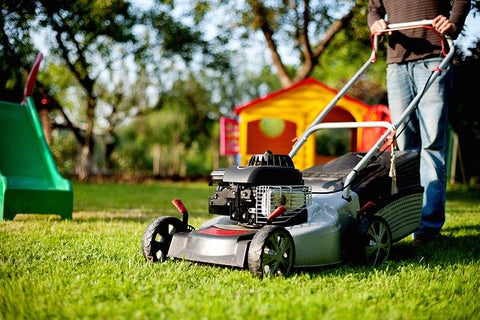
Your first line of defense in ensuring weeds don't take root and spread is to keep them mowed down. Keep in mind that one mowing will NOT kill weeds with perennial roots, and even some of the annuals will come back and try to re-flower, so consider mowing a superficial remedy.
Don't Mow Your Grass Too Short
Maybe you didn't know this, but the length of your grass can affect its health and make it less (or more) prone to weeds. Get in the habit of erring on the longer side (about two to three and a half inches). Also, mowing before weeds can set seed to choke them out.
Careful with Digging in Your Yard
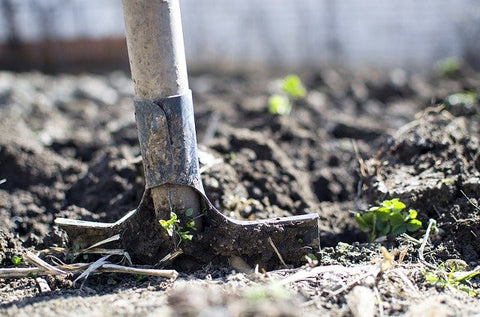
Most lawns have hidden weed seeds, so only dig on your lawn where needed, because removing grass makes room for new weeds to pop up. When digging the ground to plant, only open up a patch sized for what you need.
Plant to Beat Out the Weeds

Be sure to plant ground covers, flowers, and garden crops that can give weeds a run for natural resources (water, sun, and nutrients).
Landscaping Fabric
Weed control should begin before you ever start seeing weeds. Try laying down landscaping fabric topped with a layer of straw or mulch. If nothing else, the physical barrier can stop unwanted foliage from popping up.
Mulch
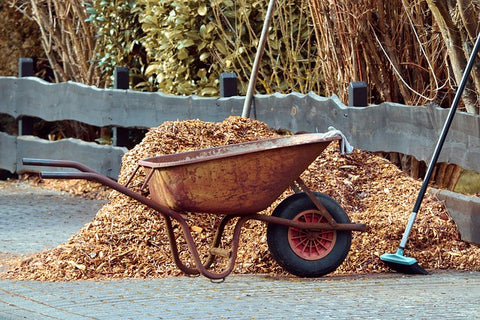
Mulch is a must-have, whether or not you use landscaping fabric. Mulch helps keep your soil cool, wet, and covered to help prevent weeds trying to grow. Keep your mulch around two inches deep and off your lawn, because it will kill your grass, as well. Also, you do not want mulch touching your home’s siding along the foundation. Mulch provides harborage for unwanted pests near your home. Pull mulch back from the foundation about 6 inches, unless you want bugs to start moving in!
Your Trusty Trowel
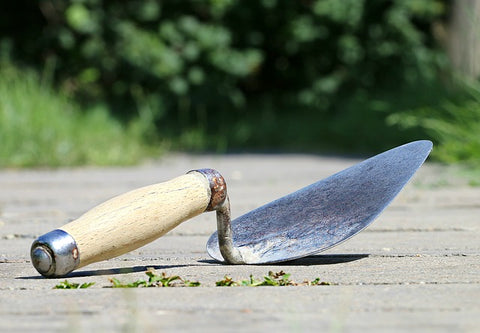
Photo by Long Beach Concrete
You can always get your trowel out and try to pull weeds out from beneath the soil (wait until after a good rain so the ground is softer). A screwdriver works well too for loosening up the soil and unwanted roots.
Boiling Water
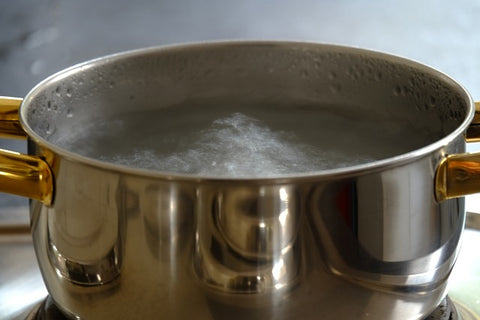
Yes, good old-fashioned boiling tap water kills weeds. Boiling water is perfect for weeds in sidewalk/driveway cracks, especially on younger weeds. Adding a tablespoon of salt to the boiling water makes it even more effective.
Salt
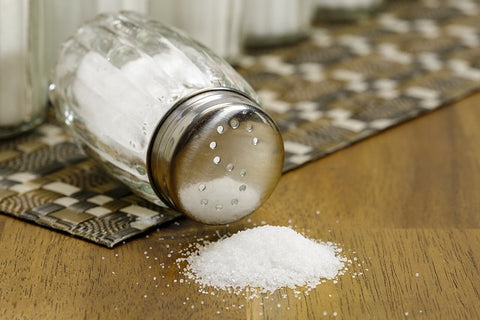
Speaking of salt, rock salt isn't just good for your icy driveway, it also helps kill weeds. Stock up at winter's end when the rock salt goes on sale, then sprinkle it on and around garden pathways in the spring (table salt also works). Also, use salt as an effective weed barrier along lawn edges and other places where your lawn mower can't quite reach--but be sure to apply carefully. Too much can stain and erode concrete surfaces over time and can scorch the ground to the point where nothing can grow for a long time.
Salt + Vinegar + Dish Soap
Speaking of salt yet again, try a concoction of salt mixed in with vinegar and dish soap as an earth-friendly alternative to conventional herbicides--it will knock weeds dead. The acid in the vinegar and the salt (or even just vinegar alone) are perfect for sucking the moisture out of the plants, while the dish soap acts as a surfactant, helping the weeds to absorb the mixture. Voila!
This mixture is great to keep in a spray bottle nearby as an inexpensive and reliable way to keep weeds in check that may pop up along sidewalks, fences, foundations, etc. Just be sure to avoid other nearby plants as much as possible, because the concoction can just as easily kill them, too.
There can be a downside, however. Though this concoction is speedy and effective on most weeds, it does not kill the weed roots like conventional herbicides might, so you may need to treat and retreat multiple times, especially for heartier weeds.
Put Old Newspapers to Work

You can take extra newspaper (or packing paper) to cover weeds that grow close to the ground like clover and crabgrass. The lack of sunlight will eventually kill them off. Covering the paper with mulch will also help prevent new weeds from growing to begin with. The paper underneath the mulch, as it decomposes, will also feed the soil.
Use Physical Barriers to Your Advantage
Retaining walls, lawn edgings, and other physical barriers can be a permanent, if not long-term, solution to contain weeds from spreading. Even simple and inexpensive edging cut out of pressure-treated decking boards hammered into the ground in a line can form an effective barrier against weeds that stays in place and lasts.
Bonus Tip: Corn Gluten
You can buy corn gluten in a powder, pellets, or granules, and it serves as an effective weed suppressant. It won't kill existing plants and weeds, but it will keep new weeds from growing. Just be sure not to over-apply.
Protect Your Plants with a Botanical Garden Spray
To help minimize the effects caused by weather, plant pests, and plant diseases, try an effective botanical garden spray to address pests, mites, and fungi. Look for a garden spray that you can use for organic gardening, indoors and outdoors, and that offers contact kill and residual repellency, without leaving behind harmful residues.
What are your go-to yard care strategies? We want to hear about them! Comment below!

For scientifically-tested, effective pest control in your yard that is friendly to the environment, try Maggie’s Farm pest control products. Our promise is that our plant and mineral-based products are developed by scientists and seasoned pest control professionals to be the most effective.
